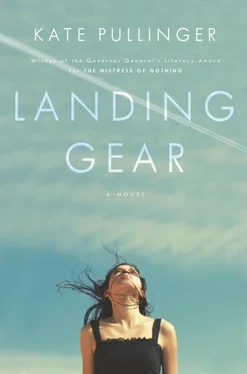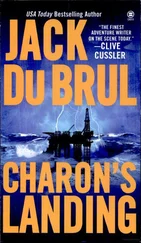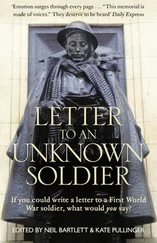Harriet had been inside the shop for ages, but her red car was still in the car park, so everything was fine. Warm air floated in through the open window; it was March but felt more like June. Emily drank her tea and listened to the radio. It was soothing, sitting in a patch of sun, watching people come and go in the car park, the sound of planes overhead, their regular and unceasing rhythm.
Another ten minutes passed and Harriet appeared, pushing a trolley with a remarkable amount of food in it. There was only one kid and one husband living with her in the big house; either they ate a huge amount or the woman cooked a ton and threw it all away. Emily filmed as Harriet pushed the trolley to the car and opened the boot. But instead of loading the bags, Harriet stopped abruptly and looked up into the sky. She continued to stare upward so Emily followed her gaze with the camera.
And then, through the eye of her video camera, she saw him. A man in the sky, falling. A plane continuing to Heathrow. She was so startled she nearly knocked the camera over, but she steadied herself and found him in the sky again. And then, bang.
He crashed into the roof of Harriet’s car.
Emily shouted and stood up, kicking over the tripod. She picked up the camera quickly and refocused. The falling man was lying on the roof of Harriet’s car, which had crumpled around him like a metal hammock. Harriet was standing beside the car, she had let go of her trolley and it was rolling away from her down the slight incline. The rest of the car park was still, the road next to it free of traffic, the London suburbs embraced by that familiar mid-morning lull when everyone is at work or school or indoors drinking coffee. A moment of peace to mark a man’s fall from the sky. He’s dead, Emily thought, he’s gone. He has passed from his world to this world and beyond.
Another plane flew overhead and a convoy of lorries circled the roundabout before barrelling away. The falling man sat up and looked around. He climbed down off the wrecked car and Emily filmed as Harriet stepped back. The man retrieved the errant shopping trolley and began to talk to Harriet, who got her phone out of her bag and made a call. To Emily’s amazement, after a few short minutes, a mini-cab pulled up, and Harriet and the falling man put the shopping bags in the back of the taxi before climbing inside and driving away.
Once they had gone, Emily sat on the floor of her flat, staring at a bit of carpet that was beginning to fray. She’d bought the carpet in a souk in Morocco. It was a quiet market, with very few tourists and no hard sell, so for once she felt able to buy something. She’d bargained but could no longer remember what she had paid, whether it was ten pounds or a hundred, even though the price had seemed all-important at the time. The seller had told her the carpet’s history, where it had been made, by whom, but she’d forgotten long since. She’d always wanted a magic carpet, and this seemed like a decent substitute.
Emily was crying a little bit and shivering. What had she just seen? Was it real? What did it mean? Could this be an elaborate ruse to smuggle illegal immigrants into the country, a scam that Harriet was involved in? No, that was ridiculous. And she had looked as shocked as Emily was to see a man falling from the sky.
Eventually, she got up, retrieved the camera and sat down on the sofa. Rewind, play. Rewind, play. It was there, she had captured it, and it was real, she hadn’t photoshopped it, it wasn’t from YouTube, she’d seen it happen with her own eyes. Freeze-frame. She downloaded it to her laptop. She copied it onto an external drive as well as a memory stick and deposited these in her usual hiding places around the flat. Then she worked on the footage, breaking it down into a series of still images and video fragments.
This was not what Emily had anticipated would happen in her film of Harriet’s life. Even though she was still shocked by what she had seen, she knew already that this was much better than the intervention she had planned. This would take the film in an entirely different direction. She needed to think this through.
She watched the footage yet again, still shivering. Then she posted on a Twitter account she used only occasionally: “Is it a plane? Is it a bird? Or is it a man, falling?”—followed by a single image. She didn’t want to use Facebook: Harriet would know straight away that the photo had come from her. Emily wondered if Harriet would see the tweet. She sat back in her chair; she hoped Harriet would find it. Why else post it?
In the days before Yacub arrived, Harriet fixed up the little room at the back of the kitchen. She wasn’t sure why. She felt as though someone was coming to visit, approaching from afar, and that person was going to need a place to stay. She had a strong sense of needing to get ready, like when she found herself cleaning kitchen cupboards before she gave birth to Jack. Now she was glad the room was ready. Yacub might be dead, but even the dead need a place to lay their heads, otherwise they might wander around the house all night, wailing and moaning.
A man fell out of the sky: she could scarcely bring herself to think about it. “Am I dead?” he had asked as he climbed down off the roof of her car. “Am I ?” she had replied. Harriet was sure that she herself was alive. The kitchen floor was still dirty—what more proof did she need? She had seen someone fall from a great height once before, and there was no denying her condition on landing. That young woman was dying, and as Harriet held her hand, her friend’s life drained away. If Yacub was not dead, well, Harriet didn’t believe in magic. She didn’t believe in ghosts either, not really, except… Yacub was as cold as a dead man. In the taxi on the way home from the supermarket, he had started to shiver violently. When Harriet took off her scarf and placed it around his shoulders, she had touched his hand; it felt like a chicken fillet, fresh out of the freezer.
There’d been a man a couple of years before—a Romanian, Harriet recalled—who’d survived a flight from Vienna to London, stashed in the plane’s landing gear. He’d walked away from his journey, dazed but unscathed. But that was when the leftover ash cloud from the Icelandic volcano was still roaming around European airspace, and the plane had been flying at a low altitude. Harriet thought she could remember other stories—half read in newspapers or online—about people surviving much longer, more perilous journeys, similar to what Yacub had undertaken. In the mini-cab, teeth chattering, he’d told her his name and said he’d come from Karachi. His English was good. He wanted to know where he was and when she told him—Richmond, London, England—he’d looked disappointed. She had to admit, he might be alive. Then again, if he’d survived the journey, how could he have survived the great fall that ended it?
It made sense for the supermarket to be the place where it happened. It shimmered beside the roundabout, full of promise, the great piles of produce, the vast displays of meat, the superabundance of choice, enough cans and boxes and bottles to feed the whole of Richmond for weeks. Harriet liked to go there because, as soon as she entered through the whispering glass doors, she felt a sense of purpose that her life otherwise denied her. Jack was growing up. Michael worked. It wasn’t as though she’d ever wanted to be a housewife, a stay-at-home-mum, a full-time mother, terms she found equally repellent and imprecise. In the supermarket, all of it—what she had desired for her own life, what she had lost along the way—faded. She listened to the scanners beep. She filled her trolley. She felt secure, replete.
The evening of the day that Yacub fell on Harriet’s car, it was just Jack and Harriet for supper, as usual, Michael working late. Jack didn’t get home till after six—sports or hanging out with his friends, or both, she didn’t like to ask, or rather, she did like to ask, but he didn’t like her to ask, so she didn’t. Today, bringing Yacub home with the bags of shopping, she was grateful he wasn’t back from school yet, regardless of whether Yacub was a ghost or not. Who knew whether other people would be able to see him? When Jack came in, he dropped his school bag, kicked off his shoes, turned on the games console and went online while Harriet cooked. She felt happy in the kitchen with Jack in the sitting room, knowing that if Yacub emerged from the little room where she’d put him, she could head him off at the pass. She made a meal that she knew Jack would like, and she didn’t ask him to set the table.
Читать дальше












